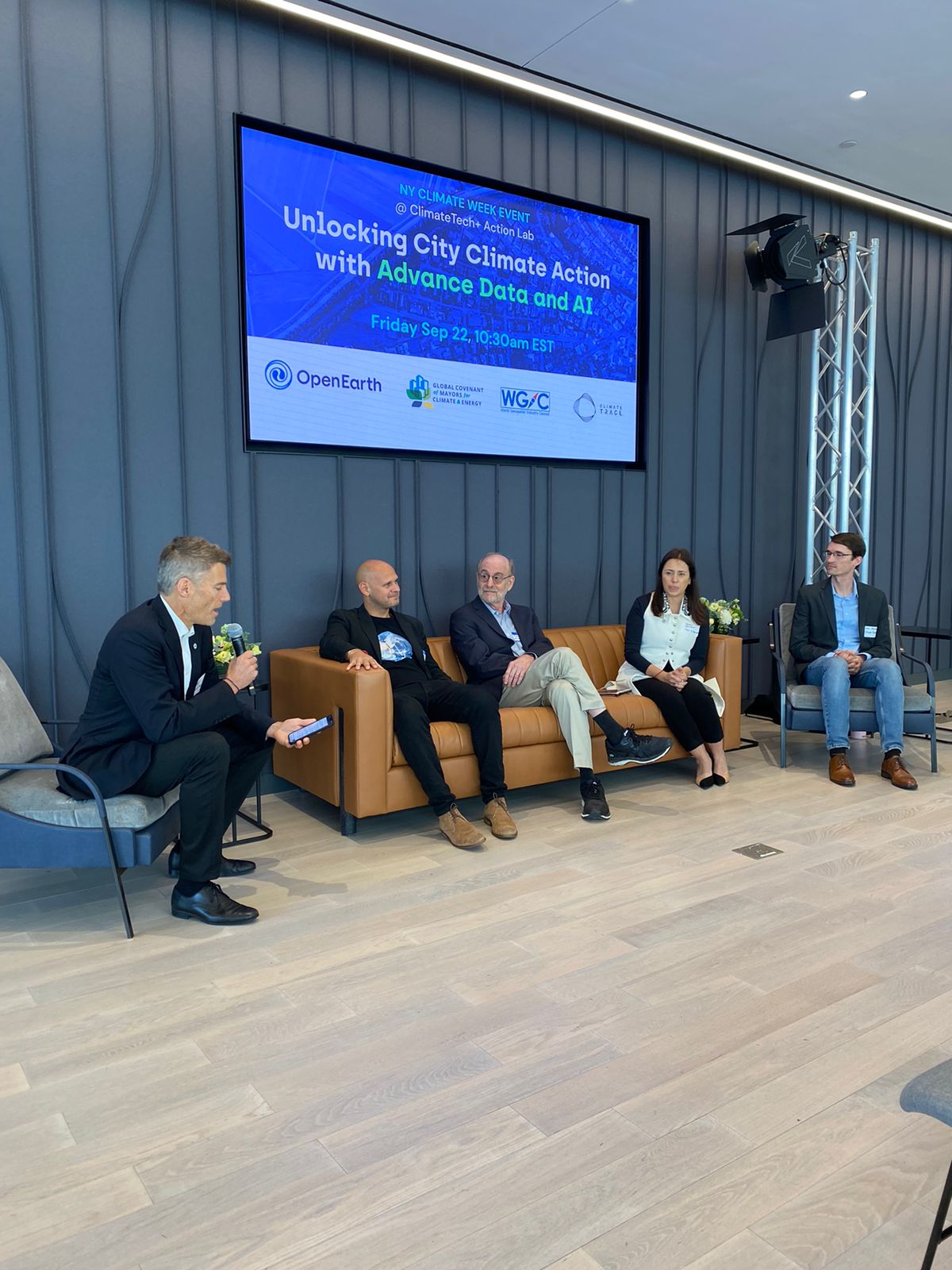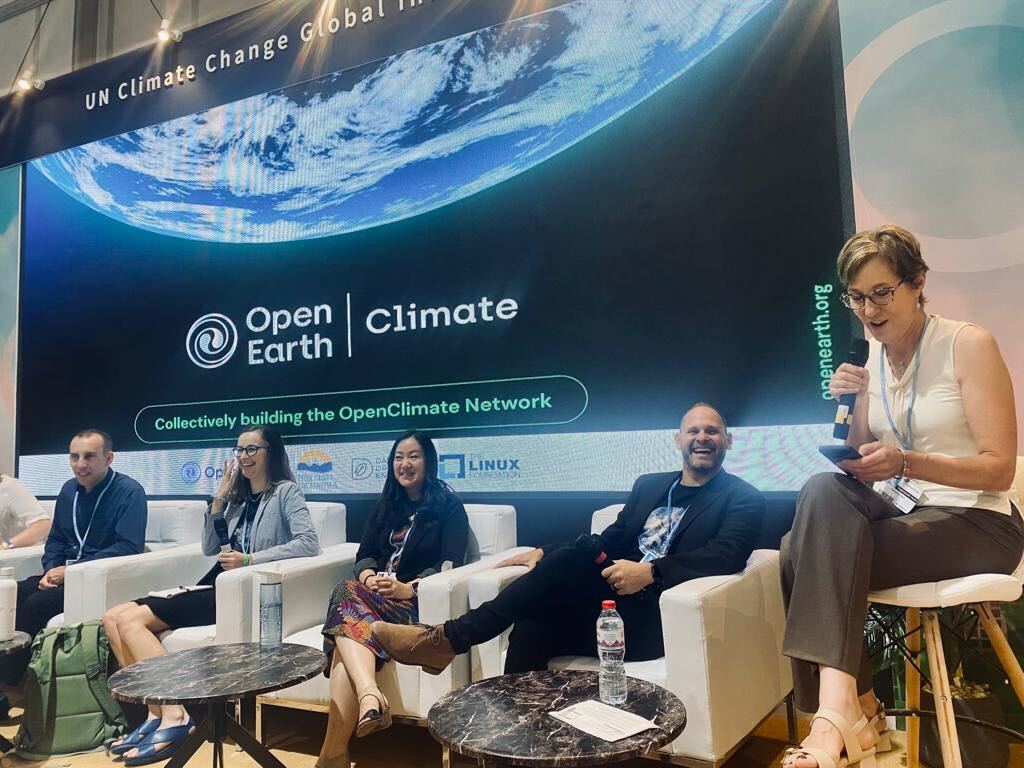We recently participated in the meetings of the Subsidiary Bodies (SB) of the Bonn Climate Change Conference, which includes the 56th meetings of the Subsidiary Body for Implementation (SBI) and the Subsidiary Body for Scientific and Technological Advice (SBSTA), convened from 6-16 June 2022 in Bonn, Germany.
UNFCCC Executive Secretary Patricia Espinosa set the stage by highlighting the “waves of unprecedented challenges” that had rocked the climate regime during her tenure but also thanked parties, non-governmental organizations (NGOs) and other non-party stakeholders, for the solutions they inspire; Secretariat staff for their work; and her family, for their support. Specifically, she remarked on the importance of the Global Stocktake process that is contributing to:
“Clearly, we urgently need implementation to happen as rapidly as possible and we need much more ambitious climate action.[...] The global stocktake is a critical part of achieving both.”
As part of the Global Stocktake, our main focus was to contribute to the technical discussion around climate accounting, discuss digital innovation approaches, and engage with present and new collaborators in the climate data space. This focus resulted in 3 key activities:
1. UNFCCC collaboration and become an official partner
We met the UNFCCC team in Bonn to finalize and sign our collaboration to actively support the development and operation of the physical and virtual hubs of the UNFCCC Global Innovation Hub (UGIH). “The UGIH is an initiative aiming to promote transformative innovations for a low-emission and climate-resilient future, shifting the current incremental, sector-based, and problem-oriented innovation agenda to a transformative, need-based, and solution-oriented one. OEF will support UNFCCC to build up the bridge between the climate change policy world with the digital technology one. (see the official announcement here).” The UGIH digital platform aims to highlight the necessity for radical collaboration in meeting demands for climate and sustainability solutions to create a global aggregate demand for solutions providers to address. The partnership is built on a long-standing working relationships in the technology design and development for climate action.
“A close collaboration on innovation with UNFCCC is a fundamental aspect of OpenEarth’s mission. By bridging open digital technology and social innovation into the Paris Agreement process, we can help the secretariat undertake new approaches to scale climate action —in support of both parties and non-party stakeholders. We are extremely excited on the road ahead for the UGIH and our partnership,” shares Martin E. Wainstein, Founder and Executive Director of the OpenEarth Foundation.
For more information, please also see our blog post on our partnership with the UNFCCC.

2. High level-Champion Event presentation
Our director, Martin Wainstein, presented at the UNFCCC High-level Champions event on “Taking stock of Progress”. Here, Martin highlighted the current climate data accounting problems that the Global Stocktake is facing - particularly regarding subnational and non-state actor data:
“Historically there has been a high degree of fragmentation among NSAs: data collections, reporting standards, progress tracking, use of voluntary markets and even among siloed initiatives to align them all. This is expected given the heterogeneity of the representations and difficulty in sharing information and coordinating action, from subnational governments and cities, to corporations, investor communities, and civil society. In the lead-up to the first Global Stocktake, having a robust platform for accounting and accountability of Non-State Actor commitments and progress is essential”
As a response, OpenEarth in collaboration with the Climate Action Data 2.0 community is developing next-gen digital tech tools for tracking non-state climate action:
“The vision is to create real-time monitoring of climate action stocktaking using cutting edge open digital technology and scalable cooperation by developing a dashboard that can act as a stocktaking visualization of Non-State Actor and their commitments"
You can read more about our approach of creating “nested NSA accounting” in our recent blog post & publication.

Another notable event was the “Workshop on NSA climate action integrity: stock-taking and strategy” hosted by the Future of Climate Cooperation in collaboration with Camda. In this workshop, we discussed the limitations and challenges that the climate data community is facing. The aim was to expand on previous discussions and foster stronger cross-collaboration.
3. Feedback collection for our OpenClimate Prototype
Our OpenClimate platform seeks to contribute to enhance climate data transparency, as an open source and digitally integrated climate accounting system that creates interoperability between different standards, reducing double counting and catalyzing coordination towards climate goals.
Of course, we can not develop such a system in isolation. The SB56 provided us with a valuable opportunity to put our current OpenClimate version to the test - simulating with interested partners and collaborators to get their feedback on what they found valuable, what could be improved and generate additional ideas for future functionalities. With this valuable feedback, we are going to iterate our proposal in order to present an improvement during COP27.














.png)













.jpg)







